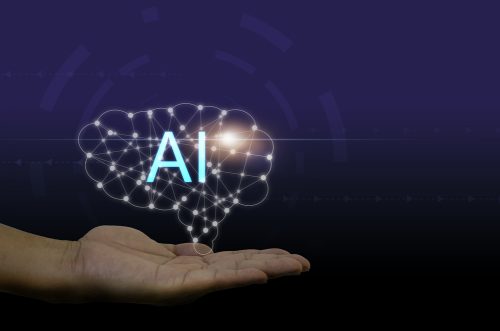Enhancing traditional insurance models: AI’s impact in 3 key areas
Change is nothing new to property and casualty insurance. The sector has demonstrated remarkable adaptability over the past ten years to new and developing risks, including the gig economy, the intricate web of cyberthreats, and the increasing intensity and frequency of catastrophic weather events. And right now, the rapid development of AI is causing yet another seismic shift in the P&C insurance industry.
With three major effects already apparent, artificial intelligence (AI) is rapidly becoming a formidable tool for conventional insurance models. These effects include changing the dynamics of P&C insurance sales and market expansion, redefining risk management criteria, and drastically reducing operating costs. This transformation will impact insurance in ways we’re only now starting to realize, ushering in a period of never-before-seen efficiency, accuracy, and expansion. Here’s a closer look at how AI is transforming the P&C insurance industry—not only making small adjustments, but also bringing about a fundamental shift.
1. Increasing sales
Insurance sales are being reengineered by AI, which gives insurers access to hitherto untapped areas. Products are being tailored to meet a variety of needs by using advanced analytics and predictive modeling to uncover new client segments. By reaching more individuals and providing them with exactly what they need, this expansion aims to increase consumer happiness and engagement.
Another field in which AI excels is the creation of more complex and customized products. Insurance providers can provide customized insurance plans that address the unique requirements of individuals or companies by utilizing large databases. Artificial Intelligence (AI) is a valuable tool for producing more appealing and competitive insurance products because achieving this level of customization requires time-consuming traditional approaches.
2. Enhancing risk management
Artificial Intelligence has a significant impact on risk management. Improved algorithms yield more precise pricing models, guaranteeing that premiums accurately represent the risk. This precision guarantees consumer justice and boosts insurers’ bottom lines, resulting in a more equitable insurance market.
AI also plays a key role in decreasing claim losses and enhancing risk selection. Artificial intelligence (AI) systems are more capable than ever of identifying possible high-risk instances by examining patterns and trends from enormous volumes of data. By reducing losses and facilitating a more effective use of resources, this capacity makes sure that attention is directed where it is most required.
3. Decreasing expenses
Reducing operational costs is one of the ways AI is likely to directly affect conventional insurance arrangements. All activities, including customer support, underwriting, and claims processing, are becoming more efficient thanks to AI-driven automation. Because of this automation, less manual intervention is required, which lowers labor costs and improves operational efficiency.
One cannot emphasize how much AI has increased productivity. We may now finish tasks in minutes that used to take hours or days. Being efficient is being able to handle more work without making as many mistakes as before. It’s not simply about speed. AI is changing the game with its fast and accurate processing and analysis of huge datasets.
What is your organization’s strategy for AI implementation?
There’s no denying AI’s capacity to transform and improve conventional insurance models; it can open new markets, redefine risk management tactics, and save a ton of money on overhead. Customers’ expectations are also being redefined because of this transformation, in addition to industry norms.
AI is going to play a more important role in P&C insurance as time goes on, moving from a competitive advantage to a necessary tool for every insurer trying to stay relevant in the market. AI in insurance is now a reality, not just a theoretical future. It has come about quite quickly. By using this technology, insurers may put themselves at the forefront of a sector that is known for increased customer focus, accuracy, and efficiency. There’s no mistaking the message: artificial intelligence is rewriting the rules, not just altering the game.


